 |
 |
 |
 |
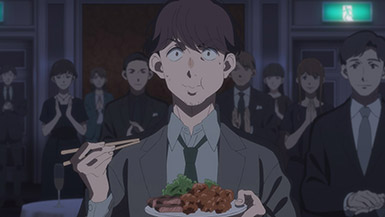 |
 |
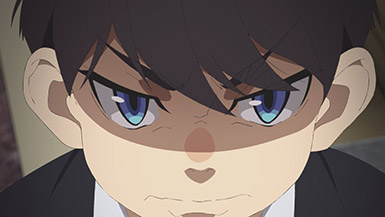 |
 |
 |
 |
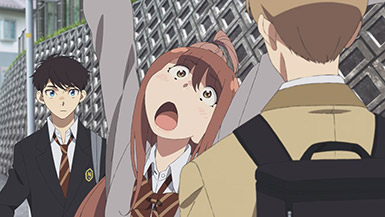 |
 |
 |
 |
 |
 |
 |
 |
 |
 |
 |
 |
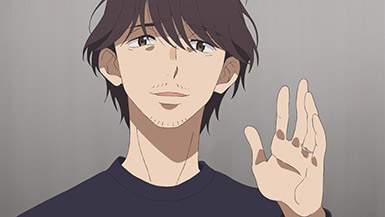 |
 |
 |
 |
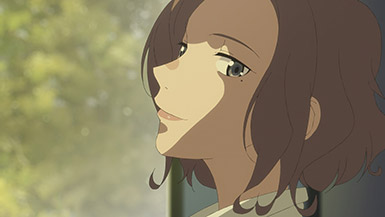 |
 |
 |
 |
 |
 |
 |
 |
 |
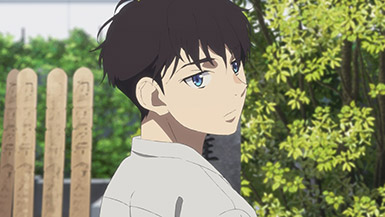 |
「過去と後悔 -His good points? Don`t ask me.-」 (Kako to Koukai: His Good Points? Don`t Ask Me.)
“The Past and Regrets: His Good Points? Don`t Ask Me.”
Madoka’s photo of Haruka finally caught up with him in Episode 04 of Overtake! as the young racer has to contend with everyone placing a higher value on him in defeat than in victory. But in the process of contending with the consequences of his newfound fame, Haruka finds out the true reason why Madoka stopped shooting human subjects.
RIGHT IN THE FUN ZONE
I’m glad that the issue of Haruka’s crying photo was addressed far earlier in the story considering how it places a high priority on resolving the dispute before getting too far into the anime. The episode ending on them hashing things out and finding some even ground is a good sign that the remainder of the anime can move past it so that the focus could steer towards building up Komaki Motors into a force to be reckoned with.
I find it interesting that there are comedic graphics and hijinks music slapped onto Haruka’s frustrating experience all the while he has real emotions towards what the photo means to him. If his dreams are aligned with being up on the winner’s circle as his father had done, the photograph is immediately synonymous with losing.
It reinterpreted Haruka’s crying from being emotional at a heartbreaking loss to persisting and never giving up even through the tears. Even though the purpose is to have people empathize with him for trying his best and persisting nonetheless, it’s also seen as a symbol for a reputation that he’ll have a hard time overcoming.
Haruka’s sponsorship might also be what exposes Satsuki as a terrible dude. His habit of subtly digging at people with a less-than-sterling reputation has been hard to ignore since the last episode when he kept reminding his partner Toshiki that he merely serves to help him win.
But this time around, he makes it all too obvious that he is salty about Haruka’s advertisements as he goes out of his way to confront him about it. His jealousy about Haruka getting an ad before he did motivated him to seek out an ad of his own, and just to make it different from Haruka’s, it will be about victory instead of defeat. In fact, he loves reminding Haruka how natural he looks as a downtrodden sad-sack who is only good at losing.
Satsuki’s an interesting character because of how well he hides behind his cheerful demeanor, and how little this facade cracks beyond the blank stare he gave Toshiki in the last episode when he passed him by. The show may still want us to approach Satsuki as Arisu does, but I don’t trust him after seeing how much he had to over-explain having no hard feelings about Haruka being the first to get a TV ad.
YOUR REPUTATION PRECEDES YOU
This was also the episode where we finally found out why Madoka refuses to shoot people as he once did. It was very intense to see that the Tohoku earthquake had caused him to reach the ethical quandary of how morally sound it is to be a photographer during times of crisis.
Many important photographs in history, especially those selected for the Pulitzer Prize for Feature Photography, have involved capturing tumultuous times in history like lightning in a bottle. An unstaged, unfiltered version of a point in history can tell a story in greater detail than written word or word-of-mouth. But this comes with the emotional toll of being a distant observer of some of the most heinous atrocities in history.
Madoka grapples with the guilt that comes from letting a girl drown by taking a picture of her final moments in the face of the tsunami. It does make me reflect on what wartime journalists or photographers must be contending with knowing that it would be easy to say they are exploiting the lives of those who are suffering in exchange for an “important” photograph. Could Madoka have saved her, or was he powerless in doing anything beyond observing? Are historical photographs merely photo ops of the dead and distraught, or a way for the observer to insert themselves into an amalgamation of a moment in time?
It does allow for Haruka to empathize with Madoka personally, especially since he had always blamed himself for his father’s death. But it’s nice that Madoka has a strong support system from people hoping to encourage him not to hold it against himself. It’s a large hurdle to leap over, especially with how easy it could be to understand why he would be horrified to have to take photos of people again. But if photographing Haruka reminded him of why he was passionate about photography, perhaps there could be an opportunity for Madoka to reconceptualize photography as a way to cheer someone on rather than remain cold and distant from his subjects.
